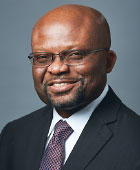Misuse of Psychiatry
In 1964, both APA and the AMA were upset after 1,189 psychiatrists stated publicly in the now-defunct magazine FACT that Sen. Barry Goldwater was psychologically unfit to be president of the United States mere weeks before the presidential election. Without having examined him, many psychiatrists commented on his psychological state, such as “his mental instability stems from the fact that his father was a Jew and mother a protestant. This ethnic and cultural split accounts for feelings of insecurity and spiritual loneliness.” Others compared him with Hitler, Stalin, and Castro.
Sen. Goldwater later testified that he was “extremely upset” by the article, noting that a smile from strangers now had a different meaning. Not only did he lose the election in a landslide, but the article also caused him harm.
In 1973, APA responded by promulgating the Goldwater Rule: “It is unethical for a psychiatrist to offer a professional opinion unless he or she has conducted an examination and has been granted proper authorization for such a statement” (Principles of Medical Ethics With Annotations Especially Applicable to Psychiatry, Section 7.3). Thirty-four years later, the AMA followed suit and adopted guidance for ethical physician conduct in the media.
According to APA, these unauthorized opinions are unethical on multiple incontrovertible grounds. Respect for persons requires psychiatrists to keep patients’ information confidential unless they are given explicit informed consent to break confidentiality. Breach of confidentiality harms the profession as it amplifies public mistrust and stigma associated with psychiatry, thereby discouraging care seeking.
Much has been noted about the ethics infractions associated with the Goldwater Rule, but less has been said about the potential for the misuse of psychiatry, an equally serious concern. It could be argued that Sen. Goldwater’s case was a gross misuse of psychiatry for political gains—his loss of the presidential election was indeed the intended outcome of the solicited psychiatric opinions.
That was hardly the only time psychiatry has been misused for political expediency. For example, the Soviet Union’s Society for Neurologists and Psychiatrists colluded with the state to misuse psychiatry by involuntarily institutionalizing political dissidents whom Soviet psychiatrists had diagnosed as suffering from “sluggish schizophrenia.” In 1983, the Soviet society resigned from the World Psychiatric Association (WPA) to avoid certain expulsion by the WPA. Likewise, in the late 1990s the WPA was alerted to allegations that the Chinese government was using the psychiatric establishment to punish members of Falun Gong (often through incarceration in forensic psychiatric hospitals) for their cultural and political beliefs that were at odds with the government’s views.
Psychiatry in this country has also committed abuses in service to society. The 19th century case of Elizabeth Packard, a married woman who was committed to the Jacksonville asylum in Illinois after being diagnosed with “Moral Insanity” for disobeying her husband and harboring alternate religious beliefs from her husband’s, is a prime example. At the hospital, she encountered many other women who had suffered a similar fate, hospitalized for decades at the behest of their husbands and acquiescence of psychiatrists for questionable psychiatric reasons. Here, psychiatry was used for social control.
The shameful misuse of psychiatry extends back to antebellum America when psychiatrists diagnosed African Americans to maintain the social order of enslavement and used Black patients to care for White patients. Of particular interest was Benjamin Rush (considered the father of American psychiatry), who believed that Black skin was a mild form of leprosy that he called “negritude,” which could be cured only by becoming White. An apprentice of his, Samuel Cartwright, coined the diagnosis “drapetomania,” a mental illness that caused Black slaves to flee captivity. After the Civil War, the frequency that severe mental illness was found in the diagnoses of patients admitted in the country’s first psychiatric hospital for Blacks patients—Central Lunatic Asylum in Petersburg, Va.—raises an important question about whether Black patients were overdiagnosed with severe mental illness, as they have been in modern times. In addition, numerous references can be found to the hypothesis that mental illness in the Black population increased substantially with the end of slavery.
Psychiatry is the only subspecialty of medicine in which a casual pronouncement by practitioners can strip individuals of their humanity, dignity, respect, and even liberty. It is little wonder, therefore, that individuals or governments with ulterior motives would strive to use psychiatry for their own ends. Because the risk of the unethical misuse of psychiatry is ever present and its consequences devastating, psychiatrists must remain on guard against it. Resisting or speaking out about such misuse is a moral imperative. ■




